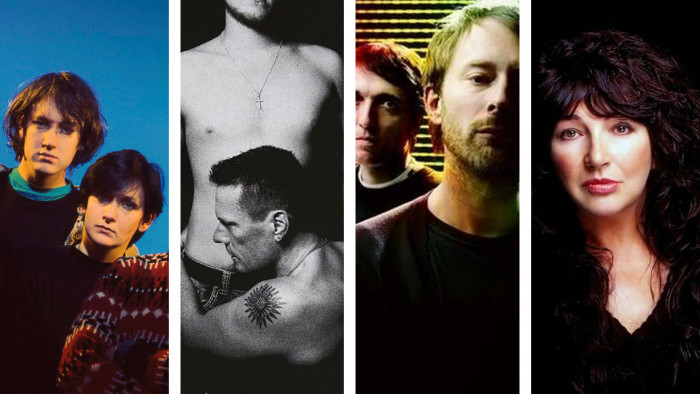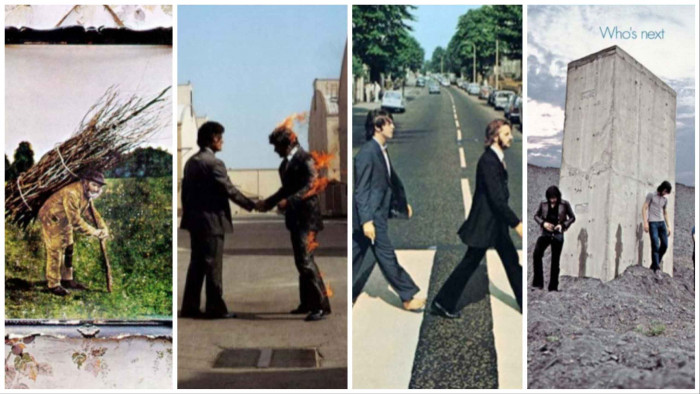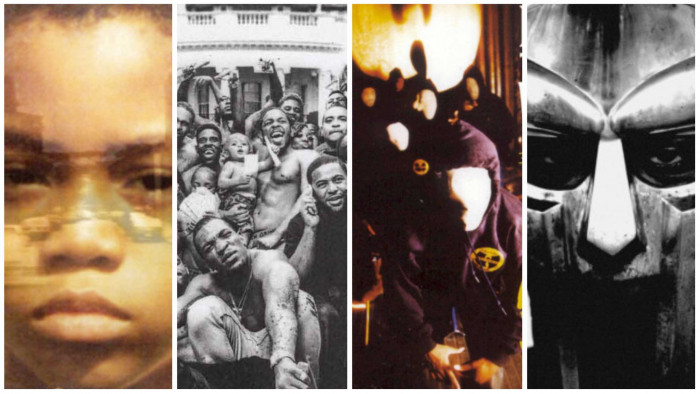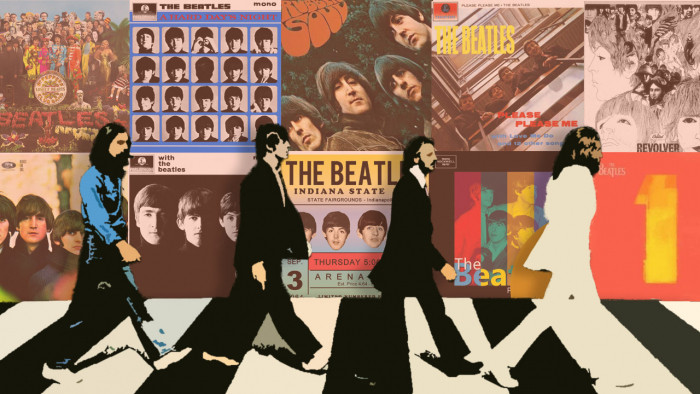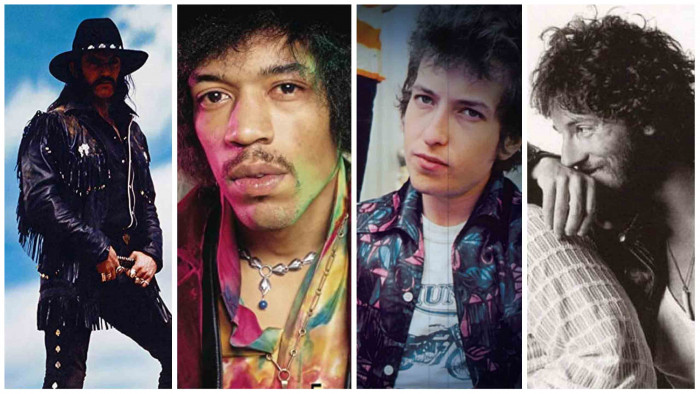Savages: the angriest band in showbiz
On the eve of their second album, Kevin EG Perry meets singer Jehnny Beth


Savages are the most ferociously intense noisemakers on Earth. On the eve of their second album, Kevin EG Perry meets singer Jehnny Beth
Savages have a reputation for being about as funny as breaking your spine while trying to turn off an episode of The Big Bang Theory, but singer Jehnny Beth is laughing her arse off.
We’re sitting in a café in London, and I’ve only asked why T.I.W.Y.G., a recent single from the usually morose post-punk outfit’s second record, ends with a laugh track.
“What can I say?” she asks, composing herself. “We thought it would be surprising.”
Surprising is putting it mildly. Since the release of ferocious 2013 debut Silence Yourself, Savages have carved themselves a niche as Britain’s most confrontational band. To see them live is to witness raw power, with Fay Milton beating the drums of hell, while guitarist Gemma Thompson and bassist Ayse Hassan whip up a storm to back Beth’s snarl. Their return this month with album Adore Life sees them square up to the world again.
“T.I.W.Y.G. is about people pointing fingers, saying: ‘This is what you get when you mess with love,’” explains Beth. “There’s a theme that you can be judged by your actions, and so suddenly, at the end, there’s the sound of a whole crowd laughing at you…”
So even when Savages laugh, they’re still jabbing their finger in your chest. I tell her I thought the laugh track was answering people who think the band are kind of…
“I think I know what you’re going to say!” she interjects.
…as miserable as getting Ebola for Christmas?
“That was part of it,” she says. “It’s interesting to deconstruct the preconceptions about yourself.”
SpotifyMission Statement
Savages’ knack of deconstructing preconceived ideas is part of what makes them so interesting. They approach being a band more like contemporary artists than knockabout indie chancers. They’re pretty much the only contemporary music group who publish manifestos alongside their records. One early EP, 2012’s I Am Here, was accompanied by a statement with the proclamation: “Savages are a self-affirming voice to help experience our girlfriends differently, our husbands, our jobs, our erotic life and the place music occupies into our lives.” You don’t get that with Mumford & Sons.
Savages formed in London in 2011, named and conceived by Thompson. She first approached Johnny Hostile, who was then recording with Beth as John & Jehn, about fronting the band. He turned her down, but suggested his bandmate instead. Hostile is now the band’s producer.
It’s difficult to imagine how different the band would have been without Beth as singer and lyricist. Born Camille Berthomier in Poitiers, mid-west France, she has reinvented herself as a very modern rock star – but her story begins the same as every other: a kid from the provinces with a dream that’s bigger than her town. “I remember being determined that I wanted to get out of my small city,” she says. “I wanted to travel the world, and music seemed to be a good medium.”
SpotifyLove, Actually
As soon as she could, Beth moved to London, skipping Paris. “Paris didn’t seem attractive,” she says. “There weren’t as many bands as there are now. I knew people in London. I wanted to live here.”
Savages did, however, find themselves playing in Paris at the beginning of December, weeks after the shootings at the Eagles Of Death Metal gig at the Bataclan. The show was a cathartic experience. “I wasn’t worried,” says Beth. “We were asked whether we wanted to cancel it, but we didn’t. We played an Eagles Of Death Metal cover. It was important to do that, just because that’s all we can do, you know? We met people who were at the Bataclan who came to our show as well. Those who came and felt better, who were able to forget their trauma during the show, they’re the heroes.”
There’s something about the intensity of Savages’ music that lends itself to moments of high emotion. Silence Yourself seemed to strike the zeitgeist when it was released in 2013: enjoying universal critical acclaim, reaching No19 in the charts and picking up a Mercury Prize nomination. Songs from the album still resonate, with stand-out track Husbands turning up in Alex Garland’s sci-fi thriller Ex Machina. “We saw the film before the final edit,” says Beth. “I think it’s great. Things like being on that soundtrack are quite unexpected, but wonderful.”
Since the release of Silence Yourself, with the band perpetually on tour, Beth was writing every day – potential song lyrics or poetry for herself. Often she wasn’t sure which. Much of Adore Life was written without Savages in mind.
“I’d written a load of things on tour, and we weren’t going to use them because they’re mostly about love. I didn’t know how we would use that,” she explains. “We realised it would be a good idea to make this record about love, and if we were going to do it, we would have to do it all the way. We didn’t want to shy away from extremes or things you might be ashamed of.”

More Than A Feeling
The result is a love record without a sappy ballad in sight. Recorded in west London’s RAK Studios, Beth’s hopeful lyrics are underscored by Thompson’s jagged riffs and the squall from the rhythm section. “If you sing about love on a distorted bass it’s a different feeling than if you sing on an acoustic guitar,” says Beth. “We wanted to go from the very small to the very big. We wanted to think about petty things and universal things, and see how that works together and contrasts.”
There was a book Thompson gave Beth which helped define what they wanted from the new record. Jazz Cleopatra by Phyllis Rose is a biography of African-American dancer Josephine Baker who shocked Thirties Paris by dancing nude with a bunch of bananas slung round her waist.
Baker’s dancing is described as “a revelation of possibilities in human nature [her audience] hadn’t suspected. The animal inside of every human being wasn’t dark, tormented, savage. It was good-natured, lively, sexy rather than sensual, above all funny.”
That ability to subvert expectations is all over Adore Life, a record built to deconstruct your preconceived idea of the love song. No wonder Savages are having the last laugh.
Adore Life is out now
(Images: Rex/Dustin Cohen)

